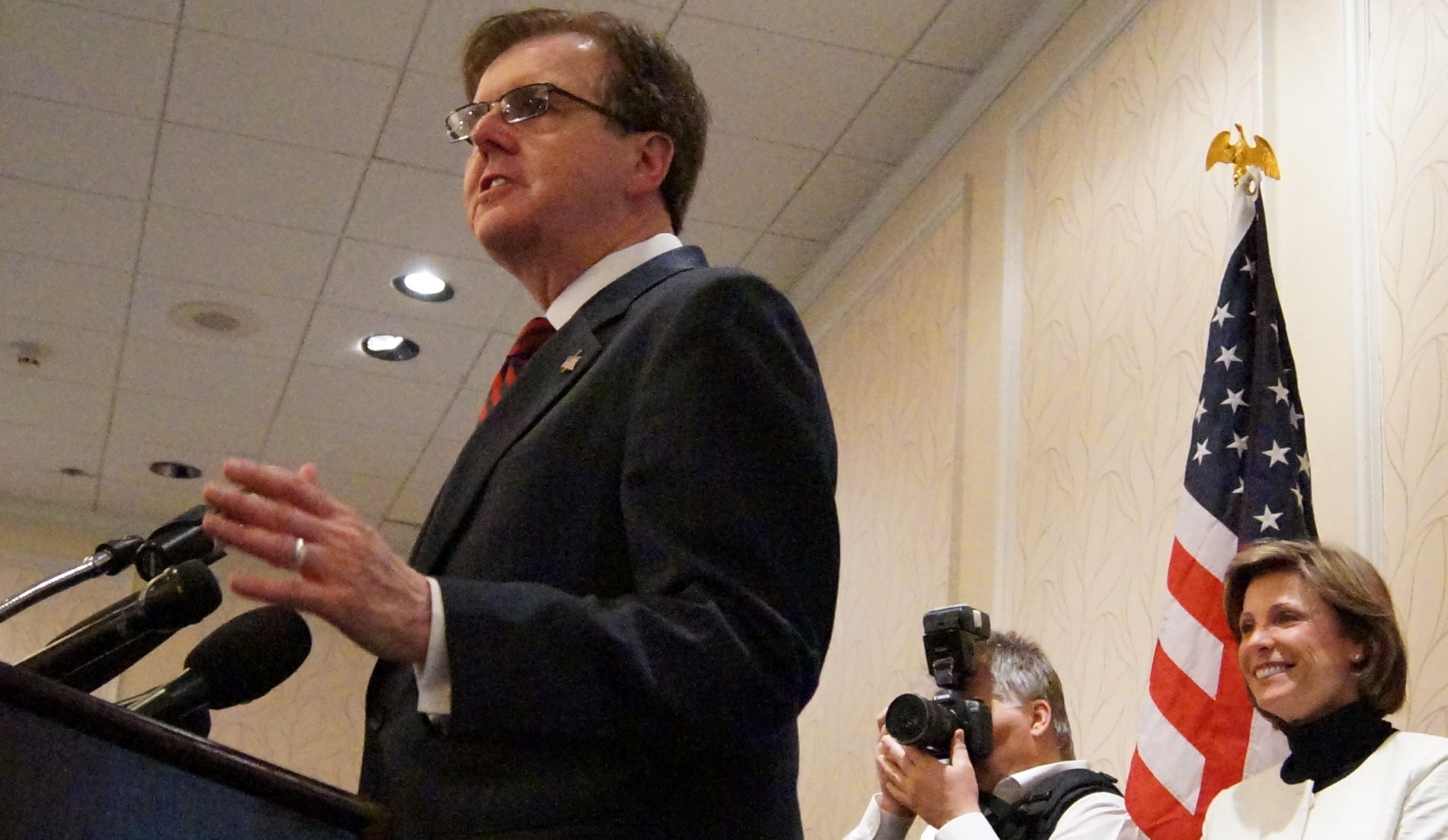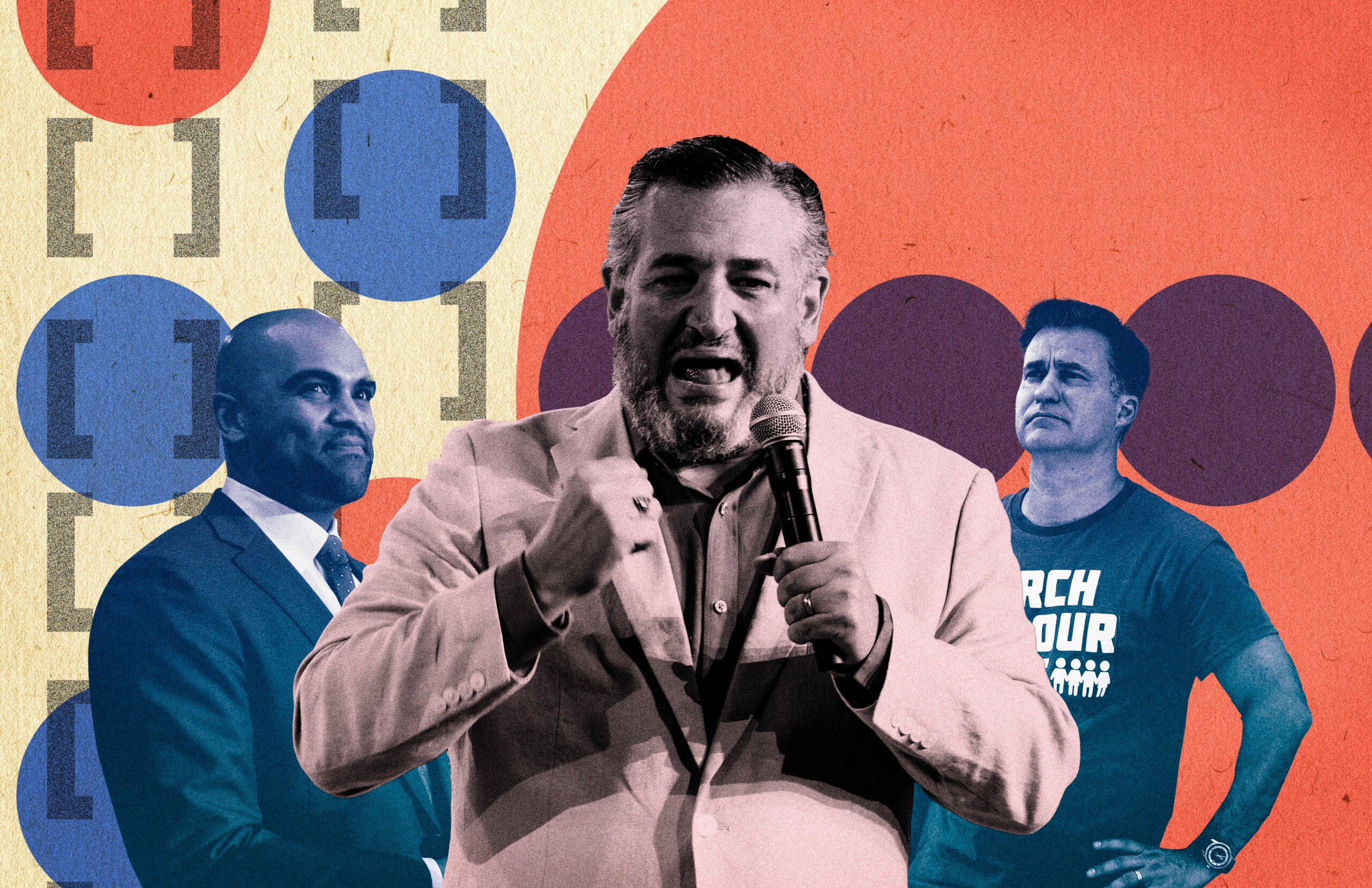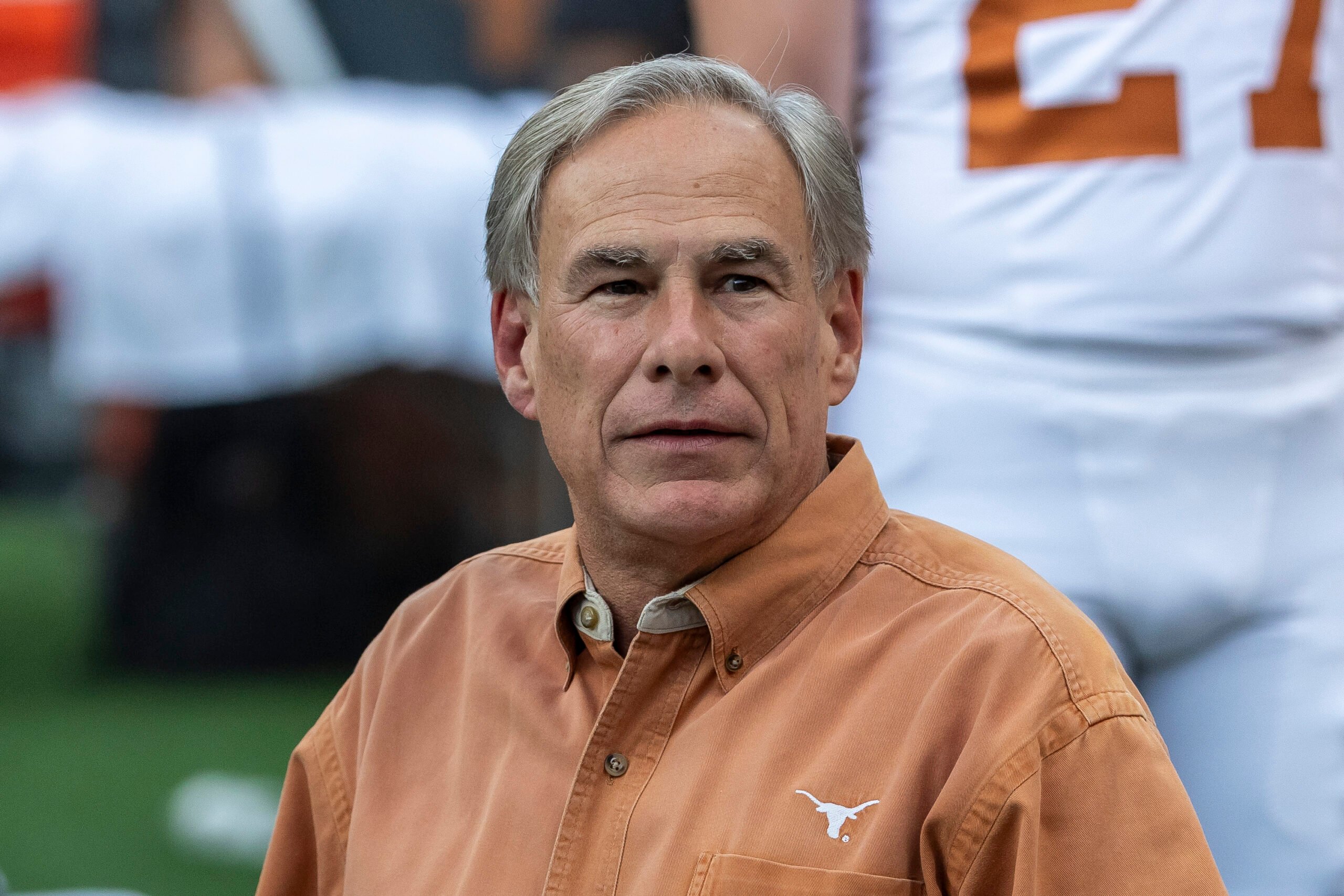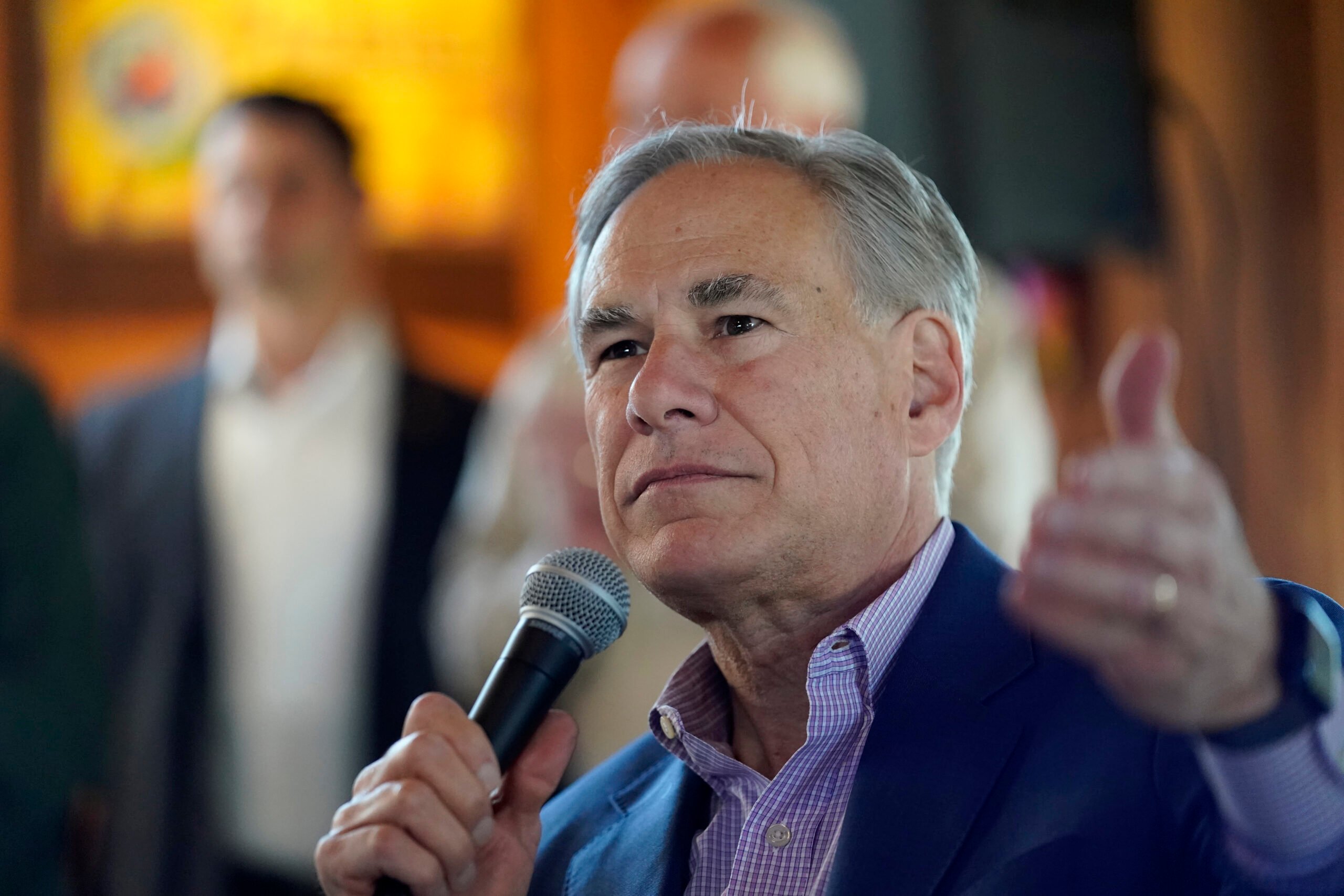
The Ascendancy of Dan Patrick
Dan Patrick's blowout victory last night was a surprise to just about everyone but himself and his supporters, who saw in it proof of God's great majesty.

There was almost nobody at state Sen. Dan Patrick’s election night party when the good word actually broke. The event, at one of those Houston mega-complexes of interconnected high-rise towers, lacked the warmth of what had been a campaign waged in small meeting rooms with earnest but die-hard activists. Press members lined the back of the room, a few drinking. A projection screen played an episode of “The Voice.” But the few supporters there knew the importance of the numbers that came down at the beginning of a long and strange primary election night: Early voting had split heavily in Patrick’s favor, and against the incumbent, Lt. Gov. David Dewhurst.
It was a shock to some election watchers. Many had speculated that Dewhurst would perform well—but not enough to avoid a runoff—with Patrick in second. But their positions were switched, and they stayed that way for the rest of the night. From early vote returns to the end of the night, Patrick’s numbers barely dipped at all, from 43.2 percent to 41.5 percent. But it wasn’t a shock for the gathered faithful. Nor did it surprise the candidate.
“I’m never surprised by the will of God, or the will of the people,” said Patrick, descending from his hotel room, dodging trays of shrimp appetizers and cameramen for a quick chat with the press. His refrain throughout the night: “The glory goes to God.” In fairness, he wasn’t the only one to put his electoral performance on the forces of the almighty—Dewhurst, in a pretty mopey speech, blamed his wonky results on the unseasonably cold weather. Republican consultant Matt Mackowiak tweeted he’d need to write himself a $10 million check to be competitive in the runoff.
Patrick struck a more upbeat tone in his speech, quoting Ronald Reagan as he accepted the 1980 Republican presidential nomination. “‘Can we doubt that only a divine providence placed this land, this island here as a refuge for all people to breathe freedom?’ Well, if Reagan were here tonight with us,” he said, as a woman near me closed her eyes as if in prayer, “he would say, ‘God gave us Texas.’ That’s why people from all over the country are coming to Texas.”

How did he secure such an amazing turnout from his conservative base? They came out “because we told them we were a Christian first, a conservative second, and a Republican third,” he said. His performance was evidence of a great truth: “The values found in the Old and the New Testament, the Judeo-Christian ethic that this country was based upon, is what people still yearn for.”
Patrick might have had a messianic certainty about his big night, but observers had been skeptical. That’s partly because the past couple weeks had been bumpy for Patrick. Sure, polls were confirming what many had speculated: that Patrick and Dewhurst, who’s been creaking his way through debates and tea party meetings like an aging battleship, were headed to a runoff. But that seemed to encourage attacks on Patrick from the race’s other contenders, who hoped for a spot in the runoff. Agriculture Commissioner Todd Staples, who had tried for years to establish his credentials as a Christian conservative and a no-nonsense tough-on-the-border politician, had seen those issues swept from under him as Patrick tacked far, far right.
And Land Commissioner Jerry Patterson, a libertarian-leaning Republican iconoclast, had become increasingly angry at what he saw as Patrick’s mealy-mouthed mendacity over immigration and other issues. Patterson helped produce evidence that Patrick—who had used consistently extreme language about Texas’ “illegal invasion” and the wave of violent crime (and “third-world diseases”) that migrants were bringing to the state—had hired undocumented immigrants himself to work at his chain of sports bars in the 1980s.
That led to, perhaps, as clear a distillation of Patrick’s heart and agenda as any this election cycle. When one of Patrick’s former undocumented workers remembered him as a kind, thoughtful employer, Patrick’s campaign fired off an unforgettable reply, as part of a rebuttal to Breitbart Texas: “The worker says I was personally very kind to him and goes on to allege other preposterous events that are not true and for which he offers no evidence.”
When Reagan first uttered the quote that Patrick used in his triumphant speech last night, it was part of an argument that America’s greatness came in part through its tolerance and acceptance of immigrants. In that speech, Reagan went on: “Jews and Christians enduring persecution behind the Iron Curtain; the boat people of Southeast Asia, Cuba, and of Haiti; the victims of drought and famine in Africa, the freedom fighters of Afghanistan.” The world’s troubled people could find opportunity in America’s great “refuge.” When Patrick quoted Reagan last night, he was standing near a giant projection screen emblazoned with the words “secure our border.”
Still, the message Patrick offers seems to resonate with his supporters. His rise in Texas politics has been stunning. As recently as 2006, when he won his first Senate election, Patrick was a vituperative and angry talk radio show host in Houston who didn’t seem likely to do well in the Texas Senate, with its emphasis on decorum and compromise. He was isolated and mocked that first session in the Senate. Now he’s on the cusp of leading it.
With Dan Patrick—a man who has promised to crack down on the border, opposes abortion in all circumstances and has tried several times to eliminate the Senate’s two-thirds rule that fosters bipartisanship—serving as lieutenant governor, all bets are off. In private, he’s a more thoughtful man than his public persona allows. But his penchant for bombast would have serious policy implications for the state.
Of course, he hasn’t won yet. He still faces a runoff with Dewhurst, and though Patrick finished first on primary night, victory isn’t assured—but Dewhurst, famously, lost his last runoff election even though he started from a much better position. In the 2012 U.S. Senate race, Dewhurst finished 10 points ahead of Ted Cruz in the primary and then got trounced in the runoff. Now, Patrick’s outdone Dewhurst by nearly 14 points. His voters seem more revved up about their candidate—whereas it’s questionable how many Texas conservatives can still get amped up about Dewhurst. Patterson and Staples won 30 percent of the vote between them, and Patrick only needs to pick off 8 percent to win, assuming Patrick’s and Dewhurst’s voting blocs remain the same. You have to like Patrick’s chances.
Last night, Jerry Patterson told reporters that he wasn’t sure if he would support Dewhurst, but that he “cannot campaign and vote for a liar.” A lot of moderate Republicans—not that there are many left in office after last night’s drubbing—are uncomfortable with Patrick. They think he goes too far. Patrick made sure to poke those people in the eyes last night, saying he wouldn’t back down or lower his profile. “I will be the greatest ally Greg Abbott has ever had on the campaign trail,” he said.
That might cheer some Democrats, who think that a Patrick victory would make the lieutenant governor race competitive for state Sen. Leticia Van de Putte—or even that his presence as a relentless ideologue in a statewide office will shift the terrain their way. But for those hoping for a Patrick victory, the best advice, after last night, is be careful what you wish for. A man who thinks he has God on his side is dangerous.


